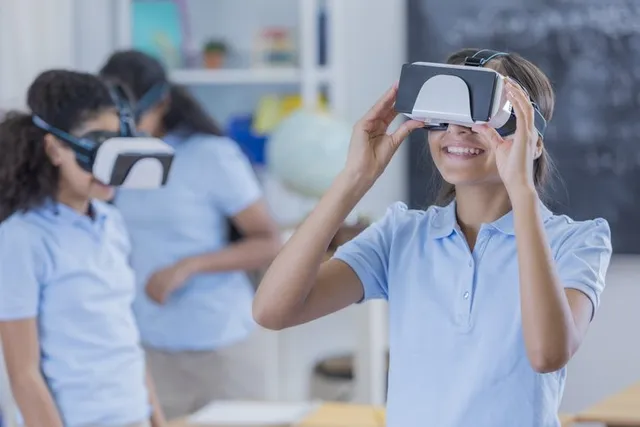The role of technology in modern MBA programs is highly significant and extensive. This technological advancement is impacting teaching methods, enhancing learning experiences, and developing students’ skills.
Technology has profoundly impacted the landscape of MBA education, making it more accessible, interactive, and dynamic. Online learning platforms have eliminated geographical barriers, allowing students worldwide to enroll in top-tier programs without relocating. This shift not only enhances accessibility but also provides flexibility, enabling students to balance their studies with professional and personal commitments. Moreover, interactive tools such as virtual simulations and AI-driven analytics offer hands-on experiences that mimic real-world business challenges, equipping students with the digital competencies required in today’s job market.
Impact of Technology

- Digital Transformation and Changes in Educational Methods
- Technology has made MBA education more accessible and interactive. Online learning platforms have removed geographical barriers, allowing students worldwide to join top programs without relocation.
- IT Skills and Functional Education
- MBA programs now include IT skills such as data analytics, cybersecurity, cloud computing, and digital marketing. These skills enable students to make data-driven decisions and provide a competitive edge in digital business environments.
- Innovative Technologies and Future Trends
- MBA programs are incorporating innovative technologies like Artificial Intelligence (AI), Blockchain, and the Internet of Things (IoT). These technologies prepare students for future industry trends.
- MBA in Technology Management
- MBA programs in Technology Management integrate business leadership with technical skills. These programs enable professionals to drive digital transformation, manage innovative products, and make data-driven decisions.
- Sustainability and Ethics
- MBA programs are now incorporating Environmental, Social, and Governance (ESG) factors, helping to develop responsible business leaders.

The integration of cutting-edge technologies like Artificial Intelligence (AI), Machine Learning (ML), and Data Analytics into MBA curricula is a significant trend. These technologies empower students to leverage data-driven decision-making, a skill highly valued across industries. AI, in particular, is transforming the learning experience by providing personalized learning paths tailored to individual student needs.
AI tools analyze student performance data to offer customized feedback and recommendations for improvement, ensuring that students focus on areas where they need more attention. Additionally, AI is embedded in every module of some MBA programs, from finance to organizational strategy, to reinforce its importance in business operations.The emphasis on sustainability and ethics is another critical aspect of modern MBA programs. As businesses increasingly prioritize sustainable practices and ethical considerations, MBA curricula are adapting to meet these demands.
Programs now include explicit focuses on Environmental, Social, and Governance (ESG) factors, equipping students with the skills needed to make informed decisions that benefit both their organizations and society at large. Furthermore, innovative technologies such as virtual reality (VR) are being used to train students in inclusive leadership, allowing them to develop empathy-driven decision-making skills. This blend of technological innovation and ethical awareness prepares MBA graduates to navigate complex moral landscapes and drive impactful change in an era where corporate responsibility is more critical than ever.
Benefits and Future Directions

This technological advancement has made MBA programs more relevant and dynamic, enabling students to tackle the challenges of modern business environments. In the future, these technological advancements will continue to shape MBA education, making it more practical and aligned with industry needs.
Key Points Summary:
- Accessibility and Interactivity : Technology enhances accessibility and interactivity in MBA programs.
- IT Skills : Incorporation of IT skills prepares students for digital business environments.
- Innovative Technologies : Integration of AI, Blockchain, and IoT prepares students for future trends.
- Sustainability and Ethics : Focus on ESG factors develops responsible business leaders.
- Future Directions : Continuous adaptation to technological advancements will keep MBA programs relevant and aligned with industry needs.
Also Read : From Classroom To Boardroom: How An MBA Prepares You For Leadership



